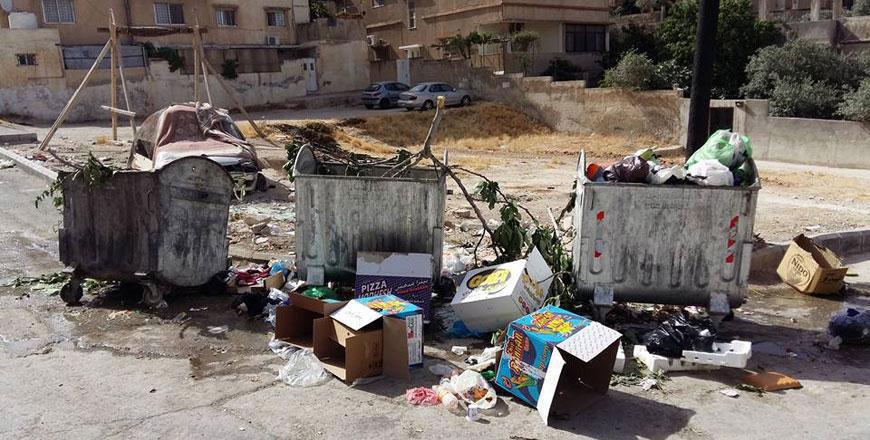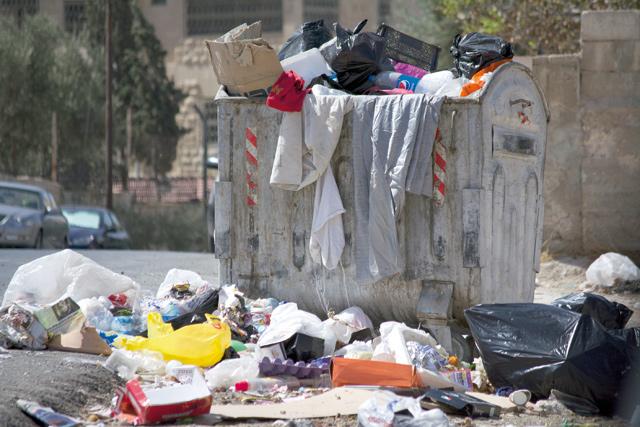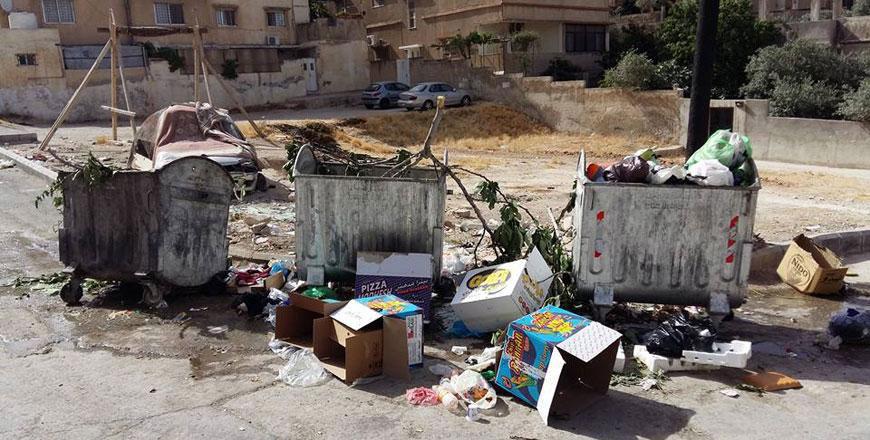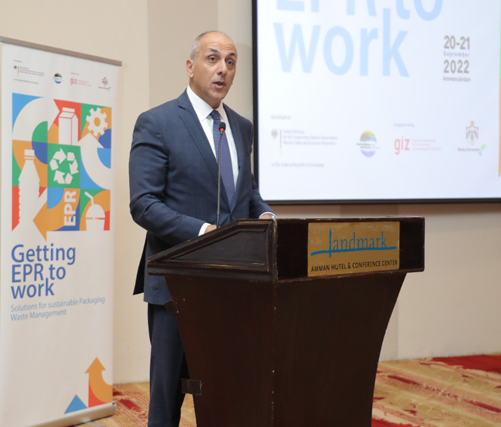You are here
Kingdom embarks on long road to sustainable waste management
By Sarah Abu Zaid - Feb 16,2021 - Last updated at Feb 16,2021

AMMAN — Jordan is working on multiple fronts to increase awareness and improve infrastructure in order to reduce waste and boost recycling habits, which would benefit not only the environment, but the economy too, according to officials and environmentalists.
In Jordan, 1kg of waste is produced per capita per day, according to the Environment Ministry. About 2.2 -3 million tonnes of solid waste are generated in Jordan each year, of which 300,000 tonnes are recycled amounting to only 8-10 per cent of the total waste generated, according to ministry figures.
Stakeholders expressed hoped that this percentage would increase to 40-50 per cent by 2030.
Work is ongoing on three main fronts: infrastructure, legislation and awareness, the said.
Infrastructure
Environmentalists and officials interviewed by The Jordan Times have stressed the significance of having proper legislation and infrastructure to promote recycling.
Establishing strong infrastructure to collect, process and recycle remains a challenge. However, work is underway, through several projects, to make it easier for everyone to sort waste and become active participants in the recycling endeavour, they said.
“We have implemented a national solid waste management plan in cooperation with the Greater Amman Municipality (GAM) to provide more labelled containers at different locations. These containers come in line with the Extended Producer Responsibility (EPR) system,” Environment Ministry Secretary General Mohammad Khashashneh told The Jordan Times in a recent interview.
According to Khashashneh, the EPR system entails placing additional containers for recyclable materials in various locations around the Kingdom. Under the first phase, 2,000 to 6,000 containers for different types of waste will be distributed.
Omar Arabiyat, director of studies and environment at GAM, told The Jordan Times that recycling efforts are still in the experimental stage.
“At GAM, we have chosen three Amman neighbourhoods to experiment. We placed several containers for all types of waste to assess the process and the response of the public. One neighbourhood consisted of high-income households, the second included medium and low-income households while the third was a commercial area,” he added.
The experiment is based on a German project titled Climate and Resource Protection through Circular Economy (CIRCLE). The first stage of the project started on January 1, 2020, which included the distribution of containers for both recyclables and general waste, according to Arabiyat.
Containers were placed in parks and house garages, according to Arabiyat. Two vehicles will be devoted for collection according to a set schedule, he added.
Khashasneh noted a smart device application, “GreenJo”, providing recycling services for households. “The number of the app users is growing,” he said.
Commenting on the GreenJo application, Osama Ghwiri, the founder of the app said that it makes it easier for collecting waste from households, adding that it seeks to play a role in preserving the environment and improving the recycling process.
After collecting the waste and sorting it out, it is then sold to factories that turn them into raw materials for reuse or export, he said.
GreenJo has around 5,046 household users and 237 company users, Ghwiri said.
Legislation
Environment Ministry’s Khashasneh noted that the government issued a law to regulate the recycling process through the Ministry of Health.
“This law was promulgated in 2020 and it entered into force on September 1 of the same year,” the official said. The law focuses on better management of the waste collection process, including sorting and disposal.
“The issue of recycling did not receive due attention over the past period. The new law will greatly help improve the entire process as it provides a framework that brings together all efforts and defines the responsibilities of public authorities towards waste management, strengthening the system for implementing waste management hierarchy,” Khashashneh noted.
He also highlighted the ministry’s efforts to prepare a national environmental document “Jordan 2030 Environment”, in support of the goal of reaching a recycling rate of 40 to 50 per cent of the total waste.
The official said that under the new law businesses producing more than 1,000 tonnes per year are obliged to take measures to separate and recycle their waste. Nevertheless, more work needs to be done to familiarise companies with the new legislation.
“We will also start a new strategy for companies that produce more than 100 tonnes of non-hazardous waste that will be announced soon,” Khashashneh said.
Awareness is key
Having strong infrastructure and proper legislation in place is key, but public awareness is paramount to achieve success, officials and environmentalists emphasised.
“The Ministry of Environment, municipalities and the Greater Amman Municipality need to understand their role in the legislative and regulatory aspects,” Omar Al Shoshan, chairman of Jordan Environmental Union, told The Jordan Times recently.
He highlighted the need to reduce single use plastic and find alternatives in the market.
“I believe that we do have awareness but in order to protect our environment we must change our personal behaviour, and strict laws must be applied to violators,” he said.
Shoshan added that the private sector needs to manufacture cleaner products with less waste generation, stressing adherence to the three “Rs”: Reuse, reduce and recycle.
Several citizens noted the lack of proper infrastructure for recycling.
Marah Abutaloul, a 23-year-old Jordanian, expressed her willingness, but a lack of recycling containers holds her back.
“We have to take care of our environment in order to sustain the stability of Mother Nature. I myself tried to organise my waste and separate them, however, the lack of specified recycling containers makes it difficult for me to be a part of the recycling endeavour,”Abutaloul told The Jordan Times.
However, Yaman, a 24-year-old Jordanian, believes that recycling is a “waste of time”.
“It is hard for me to search for the recycling containers, and I find it easier to go to the regular trash bin that is available in each street,” Yaman said.
Related Articles
AMMAN — The Ministry of Environment is scheduled to embark on implementing the Extended Producer Responsibility (EPR) system in the near fut
AMMAN — GreenJo, a start-up mobile application recently launched in the Kingdom, aims to spread environmental awareness and support the loca
AMMAN — Environment Minister Muawieh Radaideh on Tuesday inaugurated an international conference on waste management practices and policies














